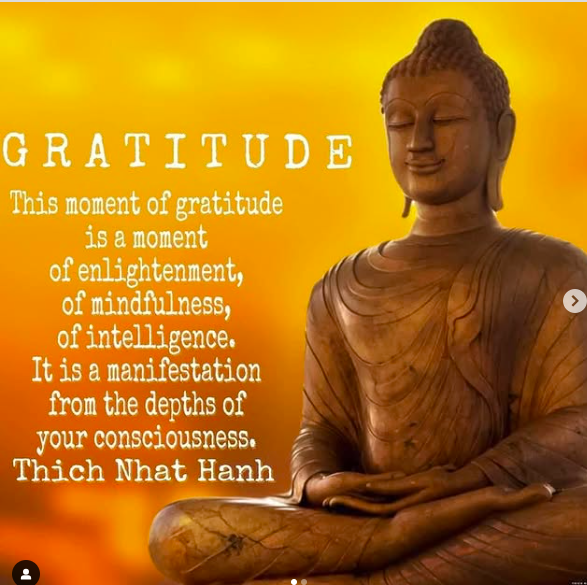One year I was in Los Angeles visiting my then eighty-nine-year-old mother. I brought with me a copy of Greater Good magazine, a magazine published by a couple of brilliant minds at the University of California at Berkeley. Their focus is on reporting the breaking research on altruism and well-being. The topic of the particular issue I had with me was the beneficial effects of gratitude. As we sat at the dining room table eating the special eggplant dish my mother always makes for me, I told her about some of the findings.
She said she was impressed by the reports, but admitted she had a lifetime habit of looking at the glass half empty. “I know I’m very fortunate and have so many things to be thankful for, but little things just set me off.” She said she wished she could change the habit but had doubts whether that was possible. “I’m just more used to seeing what’s going wrong,” she concluded.
After dinner my mom and I broke out the Scrabble set, as we often do. (She’s a terrific player and derives great joy from trouncing her poor son!) Our conversation continued as the lines of tiles filled the board.
“You know, Mom, the key to gratitude is really in the way we frame a situation,” I began. “For instance, suppose all of a sudden your television isn’t getting good reception.”
“That’s a scenario I can relate to,” she agreed, with a knowing smile.
“One way to describe your experience would be to say, ‘This is so annoying I could scream!’ Or you could say, ‘This is so annoying … and my life is really very blessed.’ ” She agreed that could make a big difference.
“But I don’t think I can remember to do that,” she sighed.
So together we made up a gratitude game to remind her. Each time she complained about something, I would simply say “and … ” to which she would respond “and my life is very blessed.” I was elated to see that she was willing to try it out. Over the next few days, as the complaints rolled off her tongue, we had many chances to play our little game. We’d both chuckle each time she dutifully gave her agreed-upon reply. Although it had started out as just a fun game, after a while the exercise began to have some real impact. Her mood grew brighter as our week became filled with gratitude and a genuine good time.
After I got home I called my mother a lot during the first few days to support her in keeping her gratitude practice alive. Miraculously she kept at it, and the new habit took hold. My sister, who had been out of town, called me when she got back. “What did you do to Mom?!” she asked.
To my delight and amazement, my mother has continued doing the practice, and the change has been revolutionary.
Seven months after my visit, she sent a card for my birthday. As is our family tradition, it contained a poem she wrote for the occasion. This one I especially cherish. Even though she started losing her sight during those months, the effects of her gratitude practice are evident in this poignant excerpt. And it goes to show you that you can teach an elder human new tricks!
Ninety is just fine with me, I no longer rant and rave
About where the world is heading and my exclusive job to save.
I wallow in contentment and know that I am blessed
Awakening to the joy of living at its best.
I’m happier than I’ve ever been and truly mean each word.
The thoughts that caused the worries now all seem so absurd.
Though my eyesight has been dimmed I see clearer than before,
The glass is not half empty, it’s overflowing to be sure.
The choice is ours. We can go through life focusing on the burdens or letting our challenges serve as reminders of the blessings that also surround us. Maybe the story of my ninety-year- old mother can inspire you to remember in the midst of life’s hassles that your life too is really very blessed.
… And my life is really very blessed.
Exercise
Each time you find yourself worrying or complaining, try adding on this little phrase:
…And my life is really very blessed…
Even if it seems false at first, let yourself play with it and see what happens. You might find it helpful to enroll an ally to keep you on track– your partner, your child, or a friend. Remember you’re in a learning process, and be patient with yourself. Every time you succeed in shifting your out!
